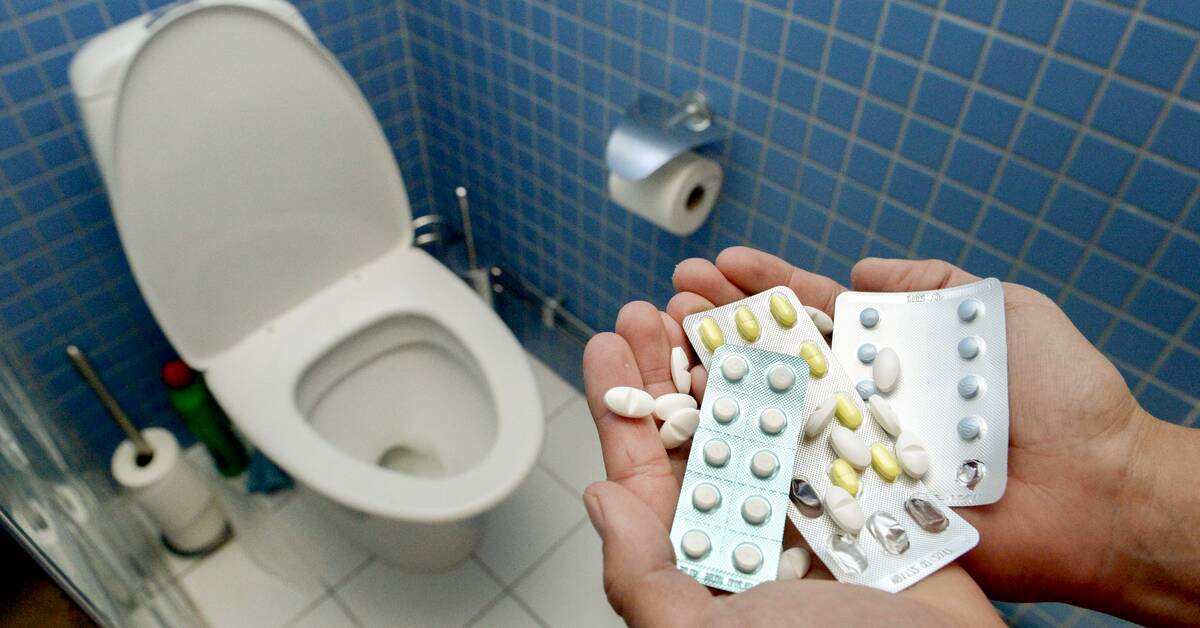In the clip above, you can hear environmental strategist Per Rosander about who is responsible for reducing drug residues
Every year, one billion daily doses of prescription drugs are used - in Västra Götaland alone.
In addition, there are all over-the-counter medicines.
Exactly how much drug residue is urinated out no one knows.
But these are large quantities.
In addition, some people choose to flush unused tablets instead of leaving them at pharmacies.
- The most important thing you as a private person can do is not to flush down leftover medicines.
For the treatment plants, 90 percent of all drugs that come in let through, says Per Rosander, environmental strategist at the Västra Götaland region.
A new report produced by the region shows major shortcomings in the purification of medicines in wastewater.
Affects reproduction
The chemicals affect aquatic organisms in a variety of ways, such as behavior and reproductive ability.
Although the levels found in Sweden are not considered acutely toxic today, there is a concern about effects after a long period of exposure.
Nevertheless, there are no clear regulations.
Unlike other chemicals that end up in the environment, there are no limit values for medicines.
Everyone's and nobody's responsibility
Per Rosander thinks that the Medical Products Agency should have a great interest in the subject.
But since it is an environmental problem, it also ends up with authorities such as the Swedish Maritime Administration, the Swedish Environmental Protection Agency, the County Administrative Board and others.
- There is no clear responsibility, states Per Rosander.
He has taken the initiative for today's meeting between a number of stakeholders to raise interest in cooperating regionally with the issue.
In the best case, you can in the long run get a clearer regulatory framework and increase the requirements for, among others, the pharmaceutical industry.

